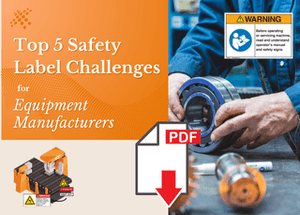The Effects of Industrial Tariffs on Manufacturing

For many U.S.-based manufacturers, the current trade war with China has been a major sore point and has negatively impacted operations. Owing in part to this, while the rest of the U.S. economy experienced a boom, the manufacturing economy was suffering a recession long before the pandemic hit. Industrial tariffs have driven up the cost of goods and created logistics nightmares for companies all around the world.
Beginnings and Reach
The trade war began when the current administration imposed trade tariffs on
Chinese imports in 2018. These were aimed at encouraging China to renegotiate
some of its trade dealings with the U.S. Instead, China levied its own tariffs
against America.
Now, even Canada has been pulled into the trade war and has threatened to impose its own tariffs. Canada is not known for its involvement in wars or global political scandals. Yet, America’s peaceful northern neighbor has decided to meet it tit-for-tat after the current administration levied tariffs against it and Mexico. In the summer, Canada proposed $2.69 billion in tariffs against America. This followed America’s reinstating of previously lifted tariffs, after the U.S. government noticed an alleged increase in aluminum imports from Canada.
Impact on Manufacturing
American manufacturers have largely suffered from the tariff
wars and have aired their displeasures. Consumers have also shared this
sentiment. Even the U.S. Chamber of Commerce has publicly stated that the
tariff taxes American businesses and consumers more than it taxes China.
For as long as the U.S. government continues with its current plan, Americans may need to find new ways to adjust. The pandemic presents its own unique challenges, but solutions do exist. For instance, businesses can lobby government officials while continuing to diversify product lines.
A Trade Deficit Unmoved
When President Trump first took office in 2016, the trade
deficit with China troubled him deeply. During his first year and a half in
office, the deficit continued to grow. America’s global trade deficit also grew
exponentially. The trade war helped to reduce the trade deficit with China, but
after renegotiations, estimates suggest that the trade deficit stands exactly
where it did when he originally took office. Meanwhile, America’s deficit has
worsened.
Interruption of Free Trade
For better or worse, America’s economy is driven by
capitalism. However, the trade war has compelled the U.S. government to become
involved in dealings usually left to the forces of free trade. After America
levied tariffs on $370 billion worth of goods from China, the manufacturing
giant responded with tariffs of $185 billion on American goods. In response,
the U.S. government struck a Phase 1 deal to purchase a specific value of goods
into 2021. This is precisely what disrupts free trade.
Effects and Outlooks for Manufacturers
Ahead of the pandemic, tariffs contributed to manufacturing
slowdowns. Companies needed time to find
new
suppliers or move production facilities. Several still have not done so.
Some found it so hard to pivot successfully that they did away with entire
product lines. The current manufacturing boom (this past October saw the
strongest manufacturing growth in the U.S. in two years), according to many
sources, is being attributed to the pandemic, and the increase for certain
goods during this time.
In terms of the outlook from manufacturers, the Association of Equipment Manufacturers reports a growing dissatisfaction with the trade war and its effects on manufacturing. It also touches on how the pandemic provided a mixed bag of results for manufacturers, with some companies thriving while others struggled. In spite of the uncertainty, some professionals within the industry feel optimistic about its future.
Expectations for the Future
There’s no question why some manufacturers look to the future with some degree
of unease. The pandemic has shaken the American economy and plunged it into a
recession, which economists say may take years to recover from. The political
future of America also seems uncertain. While Joe Biden has been projected as
the winner of the U.S. 2020 presidential election, Donald Trump has not yet
conceded. This environment can make it difficult for manufacturers to plan for
2021. Economists also struggle to project numbers for the future of the market.
Both Biden and Trump have vastly different views of what the American economy
should look like in the coming years and the role manufacturing may play in
this.
Supporting Manufacturing Now and in the Future
Regardless of the political or economic landscape, companies still need to
prioritize the safety of the products they manufacture and of their workforce.
This constant is one factor that can be planned for with confidence, and that
Clarion Safety can assist with. From
equipment safety labels
to facility signage, be in touch to let us know how we can help
ensure supply chain stability and apply best practices to your visual safety
communication strategy.



